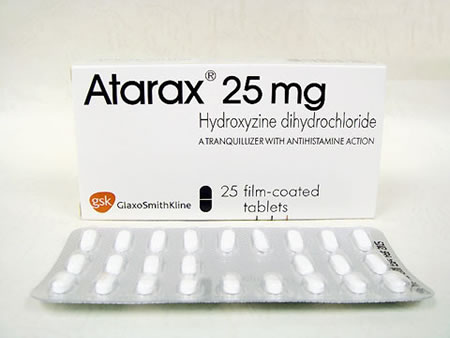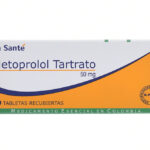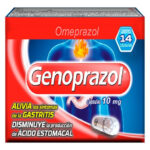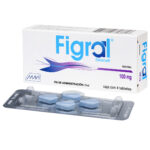Hydroxyzine: Side Effects, Dosage, Uses, and Review

Hydroxyzine is in a class of medications called antihistamines. It works by blocking the action of histamine, a substance in the body that causes allergic symptoms. It also works by decreasing activity in the brain. Hydroxyzine Hydrochloride and hydroxyzine pamoate (Vistaril) are 2 versions of the same active ingredient. Hydroxyzine pamoate is available as a brand and generic medication, while hydroxyzine hydrochloride is only available as a generic (the brand, Atarax, was discontinued).
Hydroxyzine is used in adults and children to relieve itching caused by allergic skin reactions. It is also used alone or with other medications in adults and children to relieve anxiety and tension. Hydroxyzine is also used along with other medications in adults and children as a sedative before and after general anesthesia for surgery.
What special precautions should I follow?
Before taking hydroxyzine,
- tell your doctor and pharmacist if you are allergic to hydroxyzine, cetirizine (Zyrtec), levocetirizine (Xyzal), any other medications, or any of the ingredients in hydroxyzine preparations. Ask your doctor or pharmacist for a list of the ingredients.
- tell your doctor and pharmacist what prescription and nonprescription medications, vitamins, and nutritional supplements you are taking or plan to take. Be sure to mention any of the following: antihistamines; azithromycin (Zithromax, ZMax), certain antidepressants such as citalopram (Celexa) and fluoxetine (Prozac, Sarafem, Selfemra); medications for anxiety; certain medications for arrhythmias such as amiodarone (Cordarone, Nexterone, Pacerone, ), procainamide, quinidine (in Nuedexta), and sotalol (Betapace, Sorine, Sotylize); barbiturates; clarithromycin (Biaxin, in Prevpac); droperidol (Inapsine); erythromycin (Eryc, Ery-Tab, PCE, others); gatifloxacin; certain medications for mental illness such as chlorpromazine, clozapine (Clozaril, Fazaclo ODT, Versacloz), iloperidone (Fanapt), quetiapine (Seroquel), and ziprasidone (Geodon); meperidine (Demerol); methadone (Dolophine, Methadose); moxifloxacin (Avelox); medications for pain; ondansetron (Zofran, Zuplenz); pentamidine (Nebupent, Pentam); and medications for seizures, sedatives, sleeping pills, and tranquilizers. Your doctor may need to change the doses of your medications or monitor you carefully for side effects.
- tell your doctor if you have a prolonged QT interval (a rare heart problem that may cause irregular heartbeat, fainting, or sudden death) or if you plan to be pregnant or are pregnant. Your doctor will probably tell you not to take hydroxyzine.
- tell your doctor if anyone in your family has or has ever had a prolonged QT interval or if you have or have ever had a slow or irregular heartbeat, low blood levels of potassium or magnesium, heart failure, a heart attack, or heart disease.
- tell your doctor if you are breastfeeding. Do not breastfeed while taking hydroxyzine.
- talk to your doctor about the risks and benefits of taking hydroxyzine if you are 65 years of age or older. Older adults should not usually take hydroxyzine because it is not as safe as other medications that can be used to treat the same condition.
- you should know that this medication may make you drowsy. Do not drive a car or operate machinery until you know how this medication affects you.
- ask your doctor about the safe use of alcohol while you are taking this medication. Alcohol can make the side effects of hydroxyzine worse.
How should Hydroxyzine be used?
Hydroxyzine comes as capsules, tablets, a syrup, and suspension to take by mouth. It usually is taken three or four times a day. Follow the directions on your prescription label carefully, and ask your doctor or pharmacist to explain any part you do not understand. Take hydroxyzine exactly as directed. Do not take more or less of it or take it more often than prescribed by your doctor.
Shake the suspension well before each use to mix the medication evenly.
This medication may be prescribed for other uses. Ask your doctor or pharmacist for more information.
What should I do if I forget a dose?
If your doctor has told you to take hydroxyzine regularly, take the missed dose as soon as you remember it. However, if it is almost time for the next dose, skip the missed dose and continue your regular dosing schedule. Do not take a double dose to make up for a missed one.
What are the side effects of hydroxyzine?
Hydroxyzine may cause side effects. Tell your doctor if any of these symptoms are severe or do not go away:
• dry mouth
• constipation (especially in older adults)
• confusion (especially in older adults)
• dizziness
• headache
Some side effects can be serious. If you experience any of the following symptoms, call your doctor immediately:
• unintentional trembling or shaking movements
• seizures
If you experience any of the following symptoms of a serious skin condition; stop taking hydroxyzine and call your doctor immediately:
• rash
• pus-filled, blister-like sores (lesions), areas of swelling and redness on the skin, and fever
Hydroxyzine may cause other side effects. Call your doctor if you have any unusual problems while you are taking this medication.
Can I overdose on hydroxyzine?
In case of overdose, call the poison control helpline at 1-800-222-1222. Information is also available online at https://www.poisonhelp.org/help. If the victim has collapsed, had a seizure, has trouble breathing, or can’t be awakened, immediately call emergency services at 911.
Symptoms of overdose may include the following:
• sedation
• dizziness
• seizures
• nausea
• vomiting
Hydroxyzine Safety Information
Hydroxyzine may cause birth defects. Talk to you doctor before using hydroxyzine if pregnant or breastfeeding.
Hydroxyzine can cause a serious heart problem, especially if you use certain medicines at the same time. Tell your doctor about all your current medicines and any you start or stop using.
This medication may impair your thinking or reactions. Be careful if you drive or do anything that requires you to be alert.
Stop using this medicine and call your doctor at once if you have a serious side effect such as tremors, confusion, seizures, or restless muscle movements in your eyes, tongue, jaw, or neck.
Drinking alcohol can increase certain side effects of hydroxyzine.





